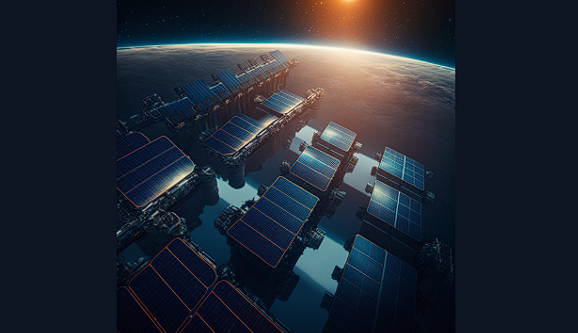The European Space Agency (ESA) has taken a significant step towards developing commercial-scale space-based solar power plants by signing contracts for two parallel concept studies. These studies, led by Arthur D Little and Thales Alenia Space Italy, respectively, will serve as reference points for ESA’s new SOLARIS initiative. The SOLARIS initiative aims to mature the feasibility of gathering solar energy from space for terrestrial clean energy needs.
The concept behind space-based solar power is to concentrate solar power in space where it is continuously available and in plentiful supply, free from local weather or darkness, and then send it wirelessly to Earth where it is needed. This technology complements rather than competes with terrestrial renewables because it can provide reliable power on an ongoing 24/7 basis, reducing dependence on large-scale storage solutions and providing much-needed stability to the electricity grid.
The SOLARIS initiative was approved in November 2022 by the ESA Council at Ministerial Level as part of the existing General Support Technology Programme. Until 2025, the ESA will work with the European industry to undertake R&D to assess the advantages, implementation options, commercial opportunities, and risks of space-based solar power as a contributor to Europe’s terrestrial energy “NetZero” decarbonisation. The results from SOLARIS will enable Europe to decide by the end of 2025 whether to proceed with a commercial and full-scale development programme of space-based solar power. Or, to begin with, a subscale in-orbit demonstrator to beam power from space to Earth.
The concept studies for the two parallel contracts are being implemented as if they were flight projects, with strict milestones, and will be completed before the end of 2023. The results of these studies will determine the follow-on studies for a sub-scale demonstrator mission and research projects into crucial technologies that SOLARIS would support.
One unique aspect of these system concepts studies at an early phase is that they are being funded by the ESA’s Preparation element, part of the Agency’s Basic Activities. The element would support R&D on new space technology and mission concepts. The SOLARIS funding for such R&D will be routed through ESA’s long-standing General Support Technology Programme.
The SOLARIS initiative is commencing when the US, Japan, China, and the UK are all pursuing their space-based solar power initiatives. Reducing the cost of orbital launch with the advent of reusable launch vehicles, the reduced cost of satellite hardware and its mass production, and the trend towards modular solar power satellite designs have made space-based solar power more feasible and desirable than ever. Furthermore, space robotics and in-space assembly and servicing technologies have advanced tremendously in the last two decades. This progress is essential for the construction and maintenance of solar power stations. As we move to the middle of this century with existing technologies and the repercussions of not doing so, the growing emphasis on Net Zero demands exploration and the development of new technologies such as space-based solar power.





